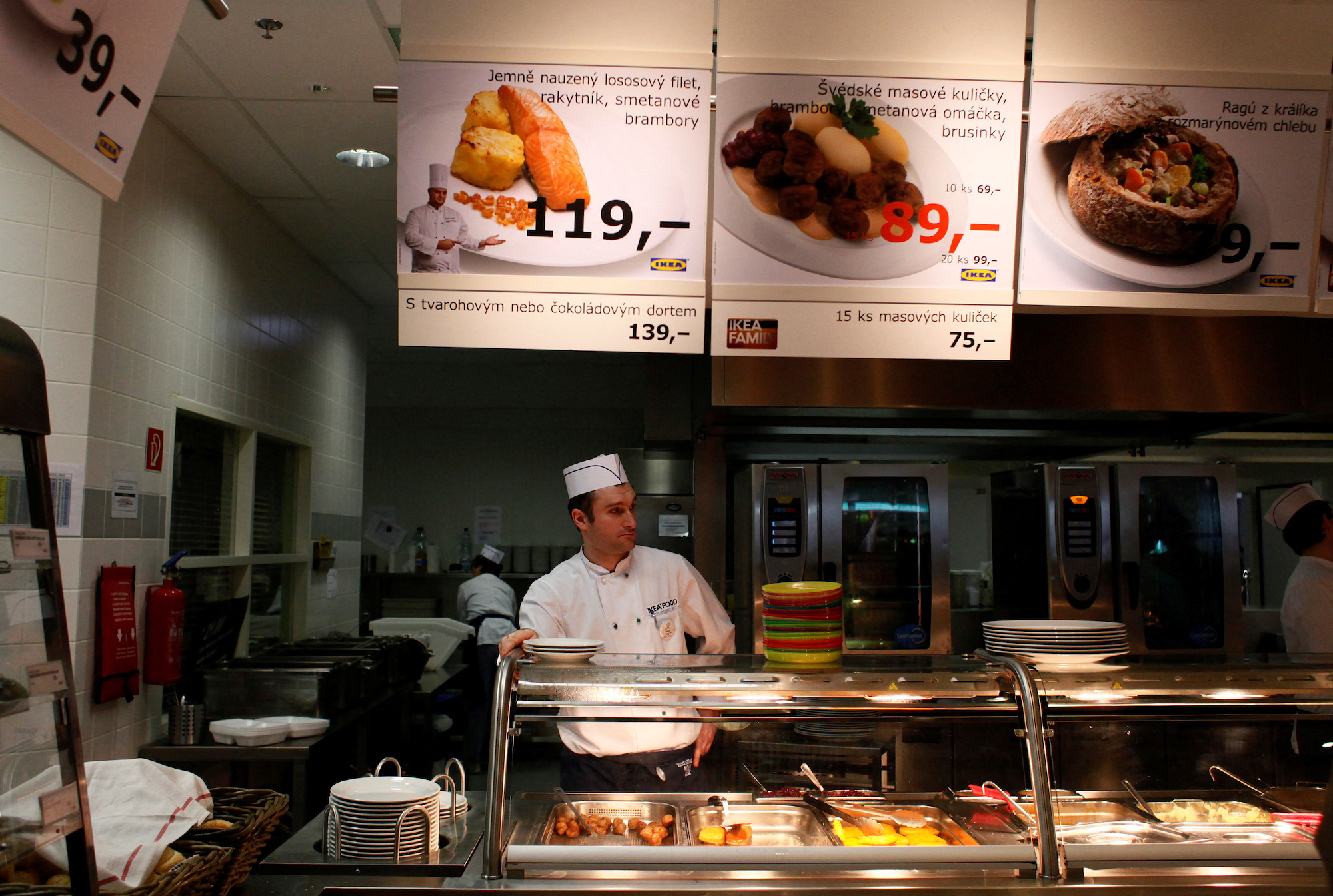Photo by Petr Josek/File Photo/Reuters
Stockholm (Reuters) – Ikea, which as well as being the largest furniture brand also runs one of the world’s biggest restaurant chains, has slashed its food waste by 54 percent since 2017 to save money and reduce its environmental footprint.
Global food waste accounts for between 8 and 10 percent of total greenhouse gas emissions, according to the United Nations’ Food and Agriculture Organisation.
Ingka Group, which owns most Ikea stores, in 2017 announced a target to halve food waste with the help of an artificial intelligence tool that allows it to better tailor amounts cooked to demand.
At the time, daily food waste per outlet, known for the trademark meatballs, averaged some 150 kilograms (330 pounds), translating to some 43,000 tons annually in total.
Ingka said in a statement on Tuesday the reduction meant it had saved more than 20 million meals and avoided 36,000 tonnes of carbon dioxide equivalents. The total saving in terms of money was 37 million euros ($37 million), a spokesperson added.
“We’re continuing to explore, test, and develop ways to prevent and reduce food waste in our operations as well as to inspire our customers and the many people to do the same,” the Ingka Group said.
“Although this achievement represents a relatively small proportion of our overall climate footprint, (0.1 percent), it is nevertheless an important step that we are proud of,” it said.
The entire Ikea value chain—from raw material production to customers’ disposal of products—in the 12 months through August 2021 emitted 26.2 million tons of CO2 equivalent.
“We’re continuing to explore, test, and develop ways to prevent and reduce food waste in our operations as well as to inspire our customers and the many people to do the same,” Ingka said.
The restaurants serve around 560 million visitors a year.
($1 = 1.0014 euros)
(Reporting by Anna Ringstrom; editing by Jonathan Oatis)





